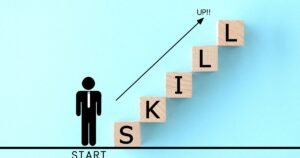In today’s competitive job market, showcasing leadership skills in an interview can set candidates apart from the rest. Employers seek individuals who can not only manage tasks but also inspire and guide teams toward achieving common goals. Demonstrating leadership isn’t just about having a managerial title; it’s about exhibiting qualities that reflect initiative, adaptability, and effective communication.
Candidates often wonder how to convey these skills effectively during an interview. Highlighting real-life examples where they led projects or motivated colleagues can make a significant impact. Whether it’s spearheading a successful team project or resolving conflicts with diplomacy, these examples provide tangible proof of one’s leadership capabilities. Understanding how to present these experiences confidently can be the key to leaving a lasting impression on potential employers.
Leadership Skills Examples for Interview

Leadership skills play a crucial role in interviews as they demonstrate a candidate’s ability to influence and motivate teams. Employers value attributes like strategic thinking and effective communication. Candidates with strong leadership examples often stand out, showing their potential to drive growth. Real-life scenarios like team management or conflict resolution illustrate these skills effectively. Demonstrating leadership may lead to increased recognition and opportunities, making it a key factor in hiring decisions.
Key Leadership Skills To Highlight
Job seekers aiming to impress in interviews must showcase key leadership skills. These skills provide insights into a candidate’s capability to lead effectively.
- Communication: Effective communication is crucial in leadership, as it involves conveying ideas clearly and fostering open dialogue. Candidates should illustrate experiences where they facilitated discussions or clarified complex concepts to teams. Highlighting achievements in improving team communication or addressing misunderstandings can demonstrate their proficiency in this area.
- Problem-Solving: Problem-solving defines a leader’s ability to navigate challenges confidently. Applicants should mention instances where they identified issues and implemented innovative solutions. Describing scenarios such as optimizing processes or addressing unforeseen problems effectively conveys problem-solving prowess during interviews.
- Decision-Making: Solid decision-making establishes a leader’s competency during critical moments. Candidates ought to reference situations involving strategic decisions that led to positive outcomes. Examples could include selecting project approaches or balancing competing priorities while considering the overall impact on the team.
- Team Management: Team management encompasses a leader’s skill in coordinating and motivating groups. Interviewees should discuss their experience in delegating tasks or mentoring team members. Sharing stories about successful team projects or improved productivity through tailored management strategies highlights effective team management.
Examples Of Leadership Skills For Different Roles
Leadership skills are adaptable across different career stages and roles. Understanding how these skills apply to varied positions helps candidates tailor their examples for interviews.

- Entry-Level Positions and Mid-Level Management: Entry-level positions often require individuals to demonstrate initiative and learning agility. In these roles, leadership skills can include collaborating with diverse team members and suggesting process improvements. For instance, a candidate might highlight leading a small team project, displaying skills like effective communication and accountability. Mid-level management demands proficiency in team supervision and strategic thinking. Leadership skills here might involve resolving conflicts and fostering team development. Examples include creating and implementing performance metrics or leading a department through change, showcasing problem-solving and decision-making capabilities.
- Executive Roles: Executive roles require strategic vision and influence. Leadership skills in these positions include driving organizational growth and fostering an innovative culture. Examples might involve spearheading company-wide initiatives or crafting strategic plans, illustrating skills like visionary leadership and executive decision-making.
Demonstrating Leadership Skills In Behavioral Questions

Mastering the art of demonstrating leadership skills in behavioral questions can significantly enhance a candidate’s chances of success in interviews. By preparing thoughtful and relevant examples, candidates can effectively showcase their leadership abilities and stand out to potential employers.
It’s crucial for candidates to tailor their responses to align with the specific role and company culture, ensuring they highlight the most relevant skills. Through strategic preparation and confident delivery, candidates can turn their leadership experiences into compelling narratives that resonate with interviewers. This approach not only highlights their qualifications but also positions them as valuable assets ready to contribute meaningfully to any organization.

